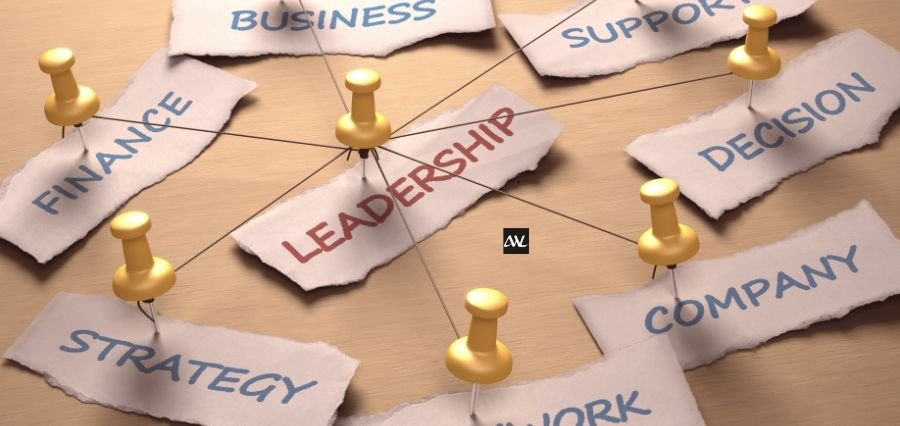Leadership Development Trends: Charting the Course to Inclusive Growth in 2025
Leadership development trends are fashioning the future of institutions, organizations, and communities around the globe. Leadership development trends in 2025 are no longer blueprints for building high-potentials—rather, they are the cornerstones of inclusive, purposeful, and responsive leadership. With growing focus on diversity, emotional intelligence, and digitalization, the leadership of the present era is transforming to address the rapidly shifting needs of a globalized workforce. Perhaps one of the greatest transformations is the emergence of Arab women as leaders, who are progressively becoming powerful voices within the leadership landscape.
Where there is a convergence of cultural transformation, economic diversification, and digital revolution in a region, the Middle East is surfing a robust female leadership wave. The dedication towards enabling women and investing in inclusive leadership approaches is a part of a broader tide of sustainable and holistic development.
Focus on Emotional Intelligence and Human-Centered Leadership
One of the most significant leadership development trends in 2025 is emphasizing more on emotional intelligence. The leaders are no longer only measured on how well they can accomplish things, but also on how well they can lead with empathy, communicate authentically, and establish trust diverse teams.
This people-first leadership is most important in cultures where change is the norm. As hybrid work has entered the mainstream, emotional intelligence enables leaders to navigate uncertainty, sidestep burnout, and fuel worker well-being. Emotional agility, empathy, and cultural competence are now core pieces of leadership education.
Rise of Arab Women Leaders in a Changing Global Landscape
The rise of this Arab women leadership is perhaps the most uplifting leadership development movement in the Middle East. With institutions and governments in the region actively pushing gender diversity, an increasing number of women are taking on top executive positions, heading ministries, and creating social innovation impact.
Women leadership programs are picking up steam—attracted not just to prepare talent but to break long-held stereotypes. Such programs are most often championed by communities of mentors, policy change, and international partnerships that create pathways for women’s access to government, STEM, finance, and business leadership.
In this historic context, Arab women are forging models of flexible, resilient leadership based on cultural confidence and international aspiration.
Models of Personalized and Continuous Learning
Another important trend in leadership development is taking on differentiated, continuous learning models. The new training model of one-size-fits-all has been done away with, replaced by adaptive models of leadership that are tailored to a person’s role, profession, and career path.
This trend emphasizes microlearning, virtual simulation, coaching, and real-time feedback systems. Leaders of the present day want leadership routes to be adaptive, technology-facilitated, and context-based. Such platforms, which utilize the assistance of AI-powered analytics to provide customized learning experiences, are gaining traction in the public and private sectors.
These models not only push enhanced engagement but also render the learning contextual—allowing the leaders to implement their new skills within their own work environments immediately.
Digital Fluency as a Leadership Imperative
With the digital world of today, digital fluency is a leadership imperative. Leadership development trends unequivocally indicate an increase in demand for executive-level digital upskilling.
This entails an understanding of data analytics, cybersecurity basics, cloud technology, and digital transformation paradigms. Leaders who are not digitally literate risk falling behind in sectors where innovation cycles are rapid and disruption is constant.
Additionally, since Arab women entrepreneurs increasingly pursue tech entrepreneurship and digital businesses, their leadership with digital literacy makes them world class and give back to society.
Values-Based Leadership and Purpose-Driven Decision-Making
The other very powerful trend in leadership development is values and purpose. Leaders today are being called to transcend profit and lead with consequences—fostering sustainability, equity, and social justice.
This is particularly vivid among Arab women leaders, who are predominantly leveraging their areas of influence to advocate for girls’ education, climate action, and community resilience. Organizations are integrating leadership systems with ESG principles, establishing a culture where long-term human and planetary wellbeing guides decision-making.
Leadership development is now aimed at making individuals identify their purpose and how it will align with the company’s vision, with authenticity being one of the leadership qualities.
Cross-Cultural Leadership and Global Collaboration
As the world becomes more globalized, one of the most rapidly expanding trends in leadership development is cross-cultural competency. Leaders ought to be able to work with multicultural teams, comprehend global dynamics, and develop inclusive spaces.
This is particularly pertinent in multinational corporations and institutions within the Arab world. As increasing global collaboration takes place, people who are able to bridge cultural differences and bridge the geographic gap are in high demand.
For Arab female leaders, many of whose professional work is as a cultural ambassador and agents of change within the Arab world, cross-cultural competencies complement leadership competencies on the international stage.
Integration of Well-Being and Mental Health into Leadership
Mental health is emerging as a leadership imperative in strategy. Organizational development initiatives are placing emphasis on emotional resilience, stress management, and balanced well-being. These are not organizational individualistic competencies but requirements in a post-pandemic environment.
Retreats and workshops are now bringing mindfulness training, work-life practices, and methods into play for establishing inner stability in difficult situations. This is being particularly considered most crucial for generations to come who encounter intricate situations in the beginning years of their careers.
The emergence of Arab women leaders has also increased the value of well-being, with most demanding mental health awareness to be included in their leadership agenda.
Final Thoughts
2025 leadership development trends indicate a future that is more inclusive, technology-driven, and value-led. The increasing number of Arab women leaders indicate a significant trend toward equity and innovation in the Middle East and world.
As companies invest in emotionally intelligent, digitally literate, and purpose-driven leadership strategies, they are not only future-proofing their workforces but also building a stronger, kinder, and more empowered world.
Leadership development has evolved from managing to change—it’s an anticipatory, forward-thinking, visionary force that repeatedly reinvents leadership with integrity, with inclusivity, and with impact.
Read More: How AI-powered Cybersecurity Prevents Modern Threats




